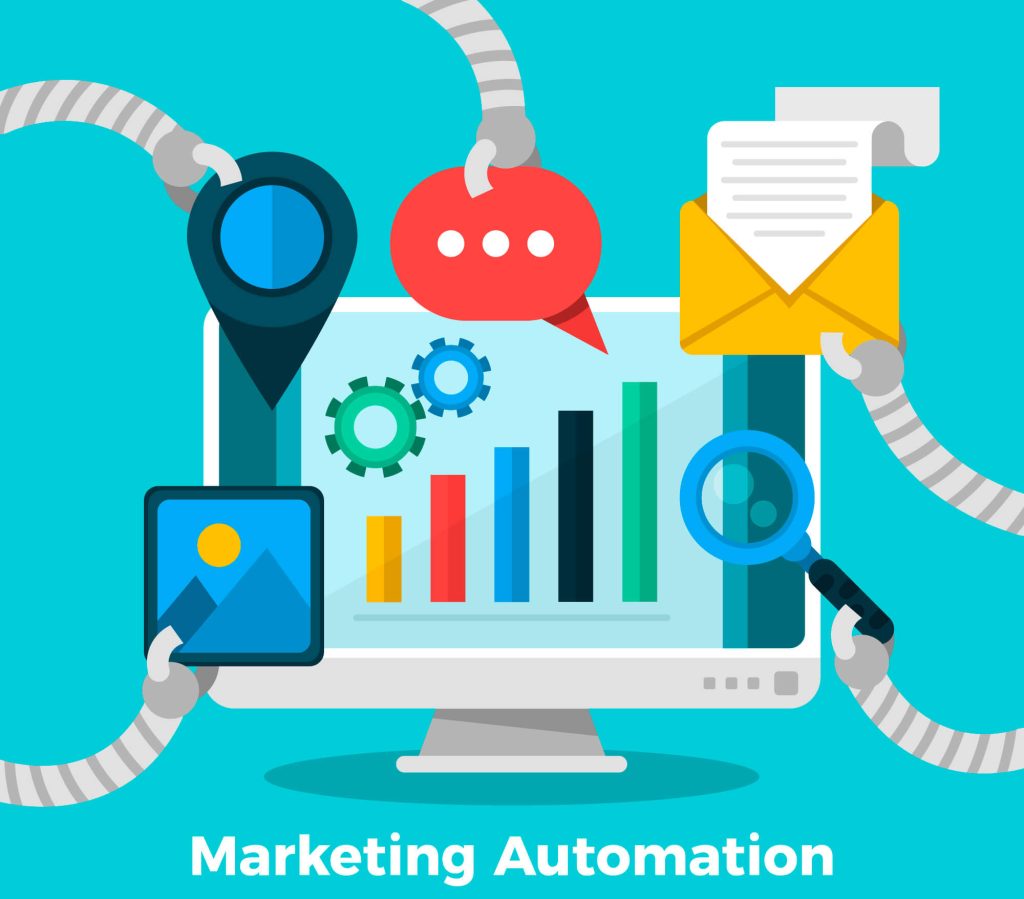Marketing Automation Tools 2023: Boosting Your Digital Strategy With Good Marketing

As we venture into 2023, the landscape of effective marketing is undergoing a transformation, driven by the rapid evolution of technology and the demand for streamlined strategies. In this digital age, marketing automation tools have emerged as a catalyst for reshaping marketing efforts. From small businesses to expansive enterprises, the synergy of marketing automation tools and platforms has revolutionized the way we approach sales and marketing. In this discourse, we’ll explore how these automation solutions, ranging from email marketing tool to comprehensive marketing hubs, are redefining the contours of good marketing.
We’ll delve into the capabilities of the best marketing automation software, dissecting features like email automation, SMS marketing, and workflow automation, to illuminate the path toward successful marketing and sales campaigns. As the likes of Salesforce, HubSpot Marketing, and other cutting-edge players offer a free reinvention of marketing processes, let’s navigate the realm of automation-driven marketing and uncover the quintessence of marketing success in this new era.
What is Marketing Automation?
Marketing automation feature involves utilizing technology to automate repetitive marketing tasks, allowing businesses to target their audience with personalized content, streamline workflows, and nurture leads more effectively. It’s a strategic approach that not only saves time but also optimizes engagement and conversions.

What are marketing automation tools?
Marketing automation tools are software solutions designed to simplify and automate marketing actions across multiple channels. These tools enable you to manage campaigns, segment audiences, schedule posts, track interactions, and analyze results, all from a centralized platform. They range from basic email marketing automation to comprehensive platforms that handle various aspects of your marketing strategy.
What are automated marketing platforms?
Automated marketing platforms encompass a broader scope of functionalities compared to standalone tools and other marketing cloud and marketing team. They integrate various marketing features and marketing channels, such as email marketing platforms, social media, and even customer relationship management (CRM) systems. These platforms provide a holistic view of your marketing efforts, fostering better coordination and data-driven decision-making.
Do you actually need a digital marketing automation tool?
In the digital age, where customer journeys are complex and personalized experiences are expected, marketing automation tools have become essential. They enable you to deliver timely and relevant content, nurture leads, and analyze interactions, resulting in more effective campaigns and higher ROI.
How to choose the best marketing automation tool?
- Features: Look for tools that align with your needs, such as email marketing, lead nurturing, social media scheduling, and analytics.
- Integration: Ensure compatibility with your existing systems, such as CRM software or e-commerce platforms.
- Ease of Use: A user-friendly interface is crucial for efficient utilization across your team.
- Scalability: Choose a tool that can grow with your business and accommodate increasing demands.
- Support and Training: Consider the availability of customer support and training resources.
What is the expected ROI after using marketing automation software?
While ROI can vary based on factors like industry and strategy, marketing automation capabilities can significantly enhance your ROI by:
- Lead Nurturing: Automated nurturing campaigns result in higher conversion rates.
- Personalization: Tailored content improves customer engagement and loyalty.
- Efficiency: Time saved on manual tasks allows your team to focus on higher-level initiatives.
- Analytics: Data-driven insights lead to optimized campaigns and resource allocation.
What are B2B Marketing Automation Platforms?
B2B marketing automation platforms cater specifically to the unique needs of business-to-business marketing. They help manage long sales cycles, multiple decision-makers, and complex interactions through personalized content delivery and lead scoring.

How Much Does Marketing Automation Cost?
The cost of marketing automation varies widely. It can range from affordable options suitable for small businesses to more comprehensive platforms with higher price tags. Factors influencing the cost include the tool’s features, the number of contacts in your database, and the level of customer support. It also depends on how well you are managing your social media marketing.
How to Choose the Best Tools for Marketing Automation?
- Define Your Goals: Determine your specific marketing objectives and what you aim to achieve with automation.
- Evaluate Features: Match the tool’s features with your goals and requirements.
- Trial Period: Many tools offer trial periods; take advantage of these to assess user-friendliness and functionality.
- Reviews and Reputation: Research user reviews and the tool’s reputation within your industry.
- Long-Term Viability: Choose a tool from a company that shows a commitment to innovation and updates.
Tailoring Strategies for Optimal Results
When it comes to marketing automation, businesses are spoilt for choice with a suite of tools designed to elevate engagement, optimize tasks, and align marketing strategies. Whether you’re a B2B enterprise aiming to enhance sales and marketing alignment through CRM and marketing automation integration or a small business seeking an all-in-one marketing automation platform, the quest to choose the best marketing automation software can be both exciting and overwhelming. The landscape offers a plethora of options, ranging from basic email marketing automation tools to comprehensive marketing clouds with multi-channel marketing capabilities.
Among the many marketing automation needs, email marketing remains a cornerstone. It’s no surprise that top marketing automation platforms include robust email marketing automation features. These tools help businesses craft and deliver targeted email marketing campaigns that focus on engagement and conversions. From Moosend’s email marketing platform, built to enhance business engagement, to HubSpot’s all-in-one marketing automation platform that offers a comprehensive suite of tools, email marketing’s prowess is evident in its ability to nurture leads and bolster customer relationships.
For those venturing into marketing automation for the first time, navigating the array of tools on this list can be daunting. However, the goal remains clear: to improve marketing efforts and achieve better results. Whether you’re a small business looking for a marketing automation software that caters to your unique needs or a large enterprise aiming to scale your marketing efforts, the key lies in choosing the right platform.
FAQs
What is marketing automation example?
A marketing automation example involves a scenario where a company uses software to automatically send personalized follow-up emails to customers who have abandoned their shopping carts. This automation aims to re-engage potential customers and drive them back to complete their purchase.
Which of the following is an example of a marketing automation tool?
An example of a marketing automation tool is HubSpot. It offers features like lead nurturing, email campaigns, and social media scheduling, allowing businesses to automate various marketing tasks and processes.
Is Mailchimp a marketing automation tool?
Yes, Mailchimp is considered a marketing tool. It provides features such as email marketing automation, audience segmentation, and personalized content delivery, making it a popular choice for businesses looking to automate their marketing efforts.
Is Google Analytics a marketing automation tool?
No, Google Analytics is not a marketing automation tool. It is a web analytics service that provides insights into website traffic, user behavior, and website performance. While it’s a valuable tool for understanding user interactions, it does not automate marketing campaigns.
What is the most common use of marketing automation?
The most common use of marketing automation is lead nurturing. Businesses use automation to create personalized email workflows that deliver relevant content to leads at different stages of the buying journey. This helps build relationships, educate leads, and ultimately increase the likelihood of conversion.
To Conclude
In the dynamic realm of marketing, where channels and strategies continue to evolve, leveraging automation has proven to be more than just a trend—it’s an imperative. As we stand at the intersection of technology and marketing in 2023, it’s evident that the integration of automation features within marketing platforms has paved the way for a comprehensive marketing solution. Whether you’re a small business seeking to optimize email marketing or a B2B enterprise orchestrating intricate sales and marketing endeavors, the right marketing automation tool can elevate your marketing campaigns to new heights.
By capitalizing on the power of tools like HubSpot Marketing and Salesforce, and embracing automation workflows across various marketing channels, businesses can craft a marketing process that’s not only efficient but also tailored for success. As the marketing landscape continues to evolve, remember that a well-chosen marketing automation solution isn’t just a tool—it’s a strategic investment in the future of your marketing endeavors.





